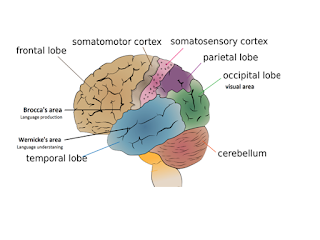AQA A-LEVEL: Issues and Debates - Nature and Nurture Debate
NATURE AND NURTURE DEBATE
NATURE
- Behaviour has roots in physiology e.g. genes, bodily functions - hormones and nervous system
- Stresses nature, reduces behaviour to a biological level- influence of genes and physical factors
NURTURE
- Behaviour is largely driven by nurturing influences e.g. our environment (learning, socialisation, social norms etc)
- Those who stress nature reduce behaviour to environmental factors and claim we learn our behaviour from our environment
INTERACTIONIST
- Both nature and nurture influence behaviour e.g. phenotypes
- Key genes may give individuals genetic predispositions to certain behaviours, however, this is moderated by environmental forces e.g. opportunities
- The Diathesis-Stress Approach is an example of interactionism
IMPORTANCE OF HEREDITY AND THE ENVIRONMENT
HEREDITY - The genetic transmission of mental and physical characteristics from one generation to another
ENVIRONMENT - Any influence on human behaviour that is non-genetic
HERITABILITY COEFFICIENT - Used to assess heredity. A numerical number which ranges from 0 to 1.0 which indicates the extent a characteristic has a genetic basis
- 1 means it's entirely genetically determined
- Plomin 1994 - IQ is 0.5, genetically and environmentally determined
Lerner - the Nature-Nurture debate is hard to answer as it's difficult to disentangle nature and nurture influences. Environmental influence starts as soon as the child is born.
- Gottesman and Shields - In TWIN STUDIES it's hard to tell if a high concordance rate is due to shared genetics or environments
EMPIRICISTS - Tabula Rasa, blank state, person is born with no knowledge or skills and knowledge is acquired via experience and instruction
NATIVISTS - Believe that we are born with most of the qualities we will display as an adult - our character and predispositions are innate
DIATHESIS-STRESS MODEL
Suggests that both nature and nurture are responsible for mental illness
- Fight or Flight responds to an external stressor which triggers the SAM pathway, A trauma or stress can trigger any predisposed genes for schizophrenia
- Gottesman's research found that twins have a 0.48 hereditability coefficient...
- Which shows genetics (nature) does contribute a lot to behaviour BUT only less than half. Although the concordance rate increases the closer family relations are, the other 0,52 must be due to environmental factors (nurture)
EPIGENETICS
A change in our genetic expression without changing the genetic code. Occurs in life and is caused by interaction with the environment. Aspects of life such as smoking or diet leave EPIGENETIC MARKERS on our DNA - this tells our body which genes to use and which to ignore.
Epigenetic markers have been argued to go on to influence the genetic code of future generations.
Dias and Ressler (2014)
- Lab mice trained to fear a chemical (which has the scent of cherries and almonds)
- Scent in the small chamber was paired with small electric shocks to male mice
- Mice then associated the scent with pain and shuddered in the presence of acetophenone
- Reaction was passed to the second generation of rats, the offspring had increased sensitivity to scent and shuddered in the presence of it
- The third generation of mice also had the same reaction
- The same reaction occurred in mice conceived in vitro fertilisation
- This shows that the behaviour of our parents and grandparents has influenced our genetic expression
EVALUATION OF NURTURE-NATURE DEBATE
RESEARCH EVIDENCE - Nestadt (2010) which supports NATURE
- 0.68 concordance rate for MZ twins but only 0.31 for DZ twins in a case for OCD
- Which shows NATURE is instrumental in behaviour
THEORETICAL ISSUES with Nestadt research
- There is a reductionist assumption, the other 0.32 for MZ could be due to environmental factor
- Correlations don't mean cause and effect, most twins aren't completely reared apart
RESEARCH EVIDENCE - Little Albert which supports NURTURE
- Little Albert was classically conditioned to learn his phobia towards rats
- Which shows NURTURE is instrumental in behaviour
THEORETICAL ISSUES with Little Albert research
- We don't know if he carried on the fear to later years as he died young. The fact he died young meant he wasn't an average healthy boy. Only one participant so we don't know if the results are generalisable.
RESEARCH EVIDENCE - Maguire et al (2000)
- Research on London taxi drivers and their memory
- NATURE - Looking at brain plasticity and the hippocampus
- NURTURE - Revising the "Knowledge Test"
- INTERACTIONIST - London taxi drivers had an enlarged hippocampus due to their environment
NATURE-NURTURE DEBATE is Reductionist
- It has biological and environmental determinism
- Free will and personal responsibility have a little role
PRACTICAL APPLICATIONS
- We can offer parenting classes to reduce poor communication and to help with relationships in the household to minimalise the risk of schizophrenia
- Medication can be given such as APs which can help manage dopamine levels
NATURE side is more Scientific
- It's objective, falsifiable, valid and reliable in comparison to Nurture.
- E.g. A1DRD2 gene for addiction, a predisposed gene for developing an addiction
- We may overstae nature arguments as they tend to be more predictable and controllable than the environment we are in. It appeals to our cognition and illusion of control




Comments
Post a Comment